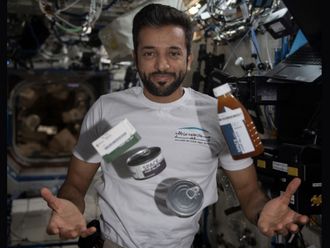Miami: The octopus is a master of disguise because it can stretch, bend and make its skin take on new shapes. Inspired by these intelligent cephalopods, researchers said Thursday they have invented a new kind of material that can act similarly.
US engineers described their product — a silicon-based skin that has a stretchable surface capable of programmed, three-dimensional texture morphing — in the journal Science.
“Engineers have developed a lot of sophisticated ways to control the shape of soft, stretchable materials, but we wanted to do it in a simple way that was fast, strong and easy to control,” said lead author James Pikul, assistant professor of mechanical engineering and applied mechanics at the University of Pennsylvania.
“We were drawn by how successful cephalopods are at changing their skin texture, so we studied and drew inspiration from the muscles that allow cephalopods to control their texture, and implemented these ideas into a method for controlling the shape of soft, stretchable materials,” he said.
The material shifts shape using 3D bumps that are similar to the papillae — the small protuberances that octopi and cuttlefish can express in one-fifth of a second to camouflage themselves.
The skin of the new material grows into new, programmable shapes when air is inflated in fibres embedded in its coating.
Researchers say it might one day be used as a coating for soft robots used to explore and study animals in their natural environments. The expandable skin could help them hide and protect them from attack.
Military uses could include concealing a robot seeking to access dangerous areas.












